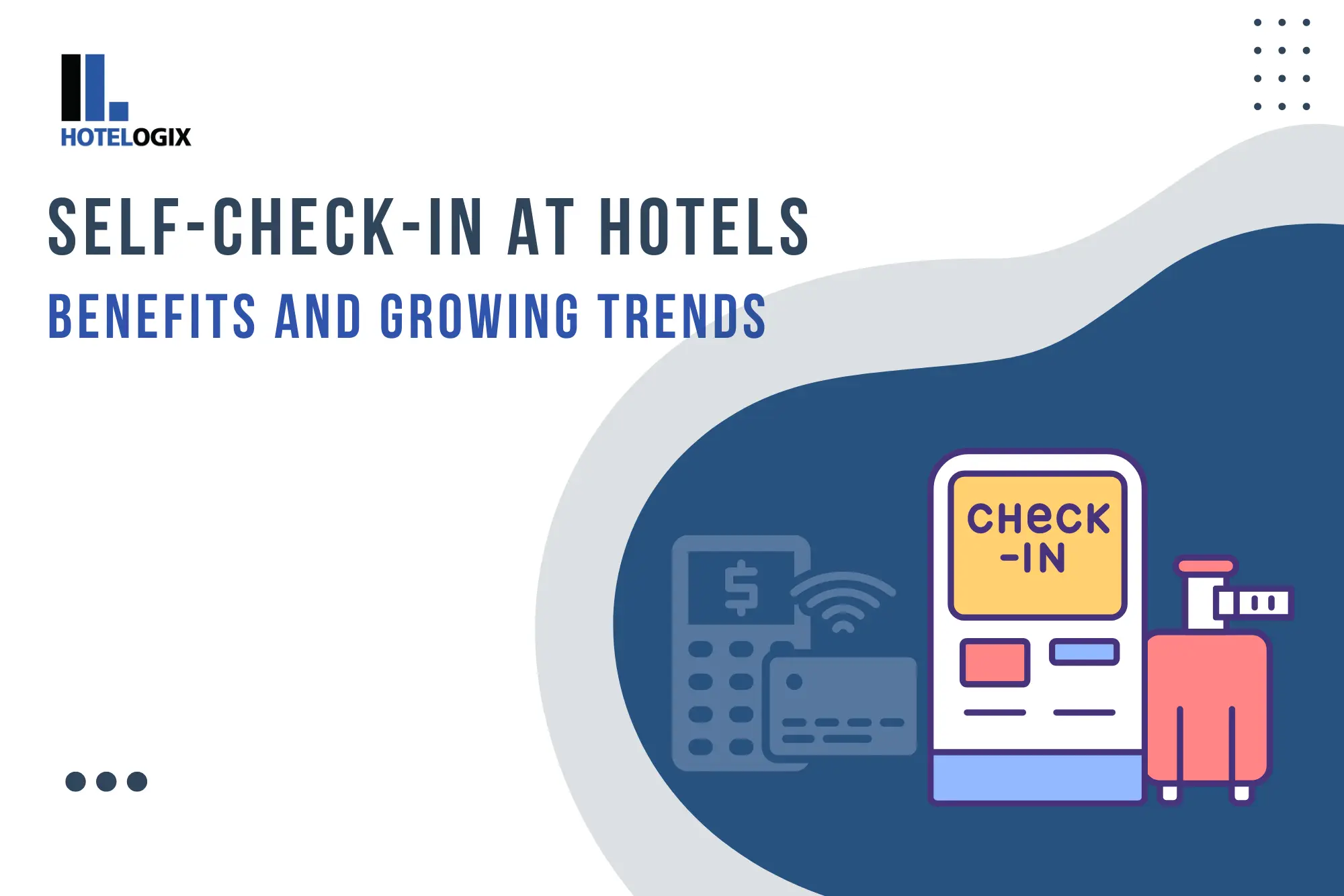Self-check-in technology is becoming increasingly popular in the hospitality industry. It allows guests to check themselves in through hotel kiosks or mobile devices, reducing the need for human interaction. This method not only speeds up the check-in process but also enhances the guest experience, providing convenience and flexibility.
What is a Hotel Mobile Self-Check-In App?
Self-check-in app lets hotel guests check in without standing in long lines at the front desk. They can either use a self check-in kiosk in the hotel lobby or their smartphone. This technology connects with the hotel property management system (PMS), ensuring real-time updates on room availability, guest data, and payments.
How Does Self-Check-In Work?
Real-Time Updates: The cloud PMS updates all guest data and room statuses in real-time.
Room Assignment: Once complete, the system provides a digital room key or instructs the guest to pick up a key from the kiosk.
Verification: The guest inputs booking details, verifies their identity, and processes payments.
Pre-Arrival Setup: Guests receive a link or QR code via email or SMS, allowing them to check in online before arrival or use a kiosk upon arrival.
Difference between Self-Checkin and Pre-Checkin:
Self-Checkin: It allows guests to handle the complete check-in process on their own. They can do it from anywhere, either at the hotel or remotely, using tools like a kiosk or mobile app. It includes tasks like verifying ID, making payments, and receiving the room key, often digitally.
Pre-Check-in: Here, guests can complete some parts of the check-in process online before arriving at the hotel. This usually involves submitting personal details and preferences. However, guests will still need to finalize the process at the hotel, such as picking up their room key.
Key Difference:
Self-Checkin offers a fully independent experience, with no need for front desk interaction, while Pre-Checkin simplifies the process but still requires some in-person steps at the hotel.
Both methods aim to speed up the check-in process, but Self-Checkin provides a more seamless, contactless experience.
Self-Check-In at Hotels: Benefits and Growing Trends
Advantages of Self-Check-In for Hotels
Real-Time Management: Integration with a cloud-based PMS keeps room availability, bookings, and guest information accurate and up-to-date, minimizing overbookings and errors.
Cost Savings: By automating check-ins, hotels can reduce labor costs and ensure 24/7 service without needing extra staff.
Increased Efficiency: Self-check-in systems reduce the workload on front desk staff, allowing them to focus on more critical guest services. This leads to faster check-ins and smoother operations across departments.
Advantages of Self-Check-In for Guests
Enhanced Privacy: Self-service check-ins provide a more private experience, especially for those who prefer minimal interaction during their stay.
Greater Flexibility: Whether using a self-check-in kiosk or mobile check-in, guests can complete the process whenever it's convenient for them, even during off-peak hours.
Faster Check-Ins: Guests can bypass the front desk and go directly to their room, reducing wait times and improving overall satisfaction.
Types of Self-Check-In Systems
Mobile Check-In: Using their smartphones, guests can check in remotely, receive a digital key, and head straight to their room. Mobile check-ins are becoming increasingly popular due to the convenience they offer.
Self-Check-In Kiosks: These are typically placed in the hotel lobby, allowing guests to check in, verify their details, and receive a room key. This system is especially useful during peak check-in times or for hotels with a high volume of guests.
Growing Trends in Self-Check-In Technology
Sustainability: Self-check-in systems reduce the need for paper-based processes, helping hotels become more eco-friendly.
POS Integration: Hotel management softwares with hotel POS system integration enable hotels to offer additional services, such as booking a spa or upgrading rooms during the check-in process.
AI Integration: Artificial Intelligence (AI) is becoming a part of self-check-in systems, offering personalized suggestions like room upgrades or additional services based on guest preferences.
Read Also: How to Quicken Check-in Process?
Challenges and Solutions
Self-check-in systems offer many benefits, but there are some challenges:
Technical Glitches: Like any tech solution, there may be occasional glitches. Choosing a reliable system with good tech support is key to solving issues quickly.
Technology Learning Curve: Some guests may be unfamiliar with self-check-in technology. However, by offering both self-check-in and staff-assisted check-ins, hotels can ensure that all guests are comfortable.
Why Your Hotel Needs Self-Check-In
Increased Competitiveness: As more hotels adopt self-check-in, staying competitive means offering these services to meet guest expectations.
Real-Time Data: Self-check-in systems provide accurate, up-to-date information, which helps hotels manage bookings better.
Guest Satisfaction: Guests appreciate the flexibility and speed of self-check-in, which enhances their overall experience.
Cost Savings: Fewer staff are needed at the front desk, lowering operating costs.
Automated check-ins streamline hotel operations, allowing staff to focus on guest needs.
Self-check-in technology is reshaping the hotel industry by offering increased convenience and flexibility for guests and staff. By adopting self-check-in kiosks and mobile solutions, hotels can boost guest satisfaction, cut operational costs, and maintain a competitive edge in today's tech-driven landscape.
Read More on Top 4 ways to simplify Check-in Check-out in Hotels
Contactless Check-In with Hotelogix PMS
Integrated with the comprehensive Hotelogix Guest Services App, it ensures real-time updates on guest data, room availability, and operational workflows. This not only improves guest convenience but also optimizes hotel operations, leading to increased efficiency and enhanced guest experiences.


